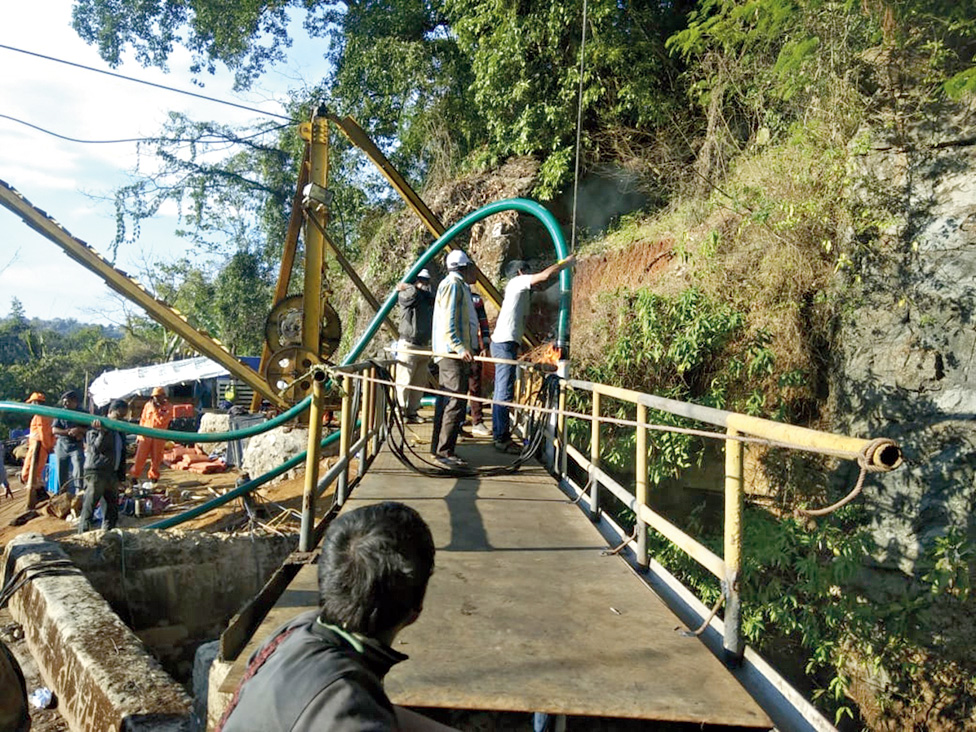Pumping of water from a coal mine in Meghalaya’s East Jaintia Hills, where 15 miners have been trapped since December 13, resumed on Saturday.
The miners have been trapped at Ksan near the Lytein river under Saipung police station.
The water in the main shaft where the miners are stuck is reportedly more than 150 feet deep while the mine is beyond 320 feet deep.
Pumping of water from the main shaft had been suspended since December 24 as the level did not recede. Only two 25 horsepower pumps were used after the incident was reported, which could not produce the desired results.
Mine experts had recommended the use of pumps of at least 100HP and which can take out 500 gallons of water per minute. But it took weeks for these pumps to finally arrive.
For the last few days, personnel from Pune-based Kirloskar Brothers Limited have been working to insert two high-power submersible pumps into the main shaft. The firm had sent its team to Thailand last year to help rescue 13 people stuck inside a cave.
The two pumps finally started dewatering work around 3.30pm on Saturday, official spokesperson R. Susngi said from Ksan, which is around 160km from here.
Susngi also said the water level in the main shaft would be determined by navy divers later. Personnel from Coal India Limited and Odisha fire and disaster management service were also engaged in pumping water out from an old shaft located near the main mine.
“On Saturday the water level in the old shaft receded by 1.5 feet and about 10 lakh litres of water had been pumped out in 10 hours,” he said.
Meghalaya governor Tathagata Roy tweeted on Saturday morning that the situation was “very difficult”.
“Had an useful interaction with DC and SP at Khliehriat (district headquarters of East Jaintia Hills) about trapped 15 miners. Was told that there is a river meandering over the coalfield whose water is constantly entering the mine-which is why the water level is not going down. As an engineer I find the situation very difficult,” Roy tweeted.
The trapped miners include three locals, seven from Rajabala in Meghalaya’s West Garo Hills and five from neighbouring Assam.











